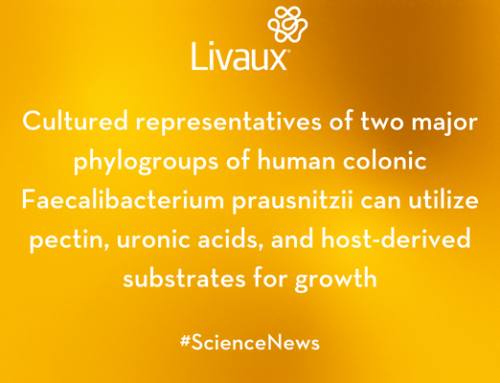Munukka,E, Rintala,A, Toivonen,R, Nylund,M, Yang,B, Takanen,A, Hanninen,A, Vuopio,J,Huovinen,P, Jalkanen,S, Pekkala,S,ISME J Apr 4. doi: 10.1038/ismej.2017.24. Epub ahead of print.:2017
Faecalibacterium prausnitzii is considered as one of the most important bacterial indicators of a healthy gut. We studied the effects of oral F. prausnitzii treatment on high-fat-fed mice. Compared to the high-fatcontrol mice, F. prausnitzii -treated mice had lower hepatic fat content, aspartate aminotransferase and alanine aminotransferase, and increased fatty acid oxidation and adiponectin signalling in the liver.
Hepaticlipidomic analyses revealed decreases in several species of triacylglycerols, phospholipids and cholesteryl esters. Adiponectin expression was increased in the visceral adipose tissue, and the subcutaneous and visceral adipose tissues were more insulin sensitive and less inflamed in F. prausnitzii -treated mice.
Further, F. prausnitzii treatment increased muscle mass that may be linked to enhanced mitochondrial respiration, modified gut microbiota composition and improved intestinal integrity. Our findings show that F. prausnitzii treatment improves hepatic health and decreases adipose tissue inflammation in mice and warrants the need for further studies to discover its therapeutic potential.










